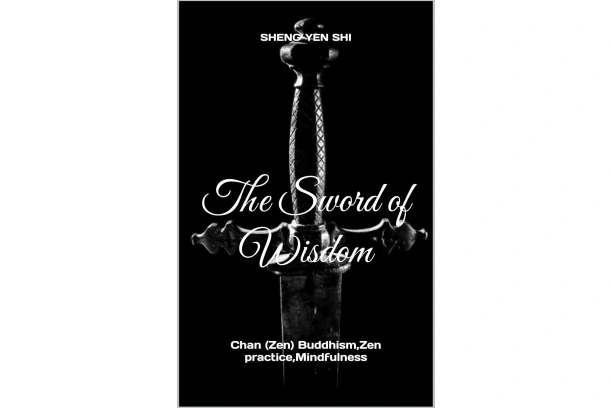From "Small Self" to "Greater Self": How Meditation Helps Us Live in the Present
How many people do you meet each day, how many calls do you take, how many decisions do you make, and how long do you take to enjoy lunch or dinner? In this era of rapidly evolving technology and information, people’s lives are increasingly fast-paced, with vast amounts of time spent handling a deluge of complex information. This constant “on-alert” state can lead to intense mental fatigue and stress, causing exhaustion both physically and mentally.
As the world around us moves quickly, we need inner calm and slow, steady balance to counter it. Among many psychological practices, meditation is becoming a widely recognized and familiar concept, known for promoting health and well-being. You can cultivate inner peace through meditation. We sincerely recommend you to check our ebook The Sword of Wisdom: Chan (Zen) Buddhism,Zen practice,Mindfulness. In this book, you may can look for the right answer.

“Fear Not Your Thoughts, Only Fear Being Unaware of Them”
Psychology offers many techniques to help people adjust their mental state. For instance, managing emotional reactions can improve mood, while art therapy allows people to express and explore their inner world, encouraging personal growth. Exploring subconscious thoughts and emotions can also help resolve internal conflicts. So, how does meditation differ from these methods, and why is it gaining popularity?
One significant effect of the information age is that it triggers our thoughts more easily. Individuals frequently experience intrusive thoughts—memories of the past, worries about the future, or daily trivialities. Excessive thinking can cause anxiety, distraction, or frustration. Meditation’s core lies in cultivating a non-judgmental awareness of these thoughts, observing them without getting carried away. When we notice our thoughts as they arise, we can redirect our attention to the breath, bodily sensations, or a meditative object. This timely awareness prevents emotions from spiraling and thoughts from expanding chaotically, maintaining inner calm and focus.
Meditation trains this non-judgmental awareness, which is easy to practice anywhere and independently. It fosters self-awareness rather than focusing on specific psychological issues.

The Scientific Benefits of Meditation
In meditation, the brain’s default mode network (DMN) activity changes. This network relates to self-reflection, inner dialogue, and wandering thoughts. When people become aware of their thoughts in meditation, the DMN activity is suppressed, reducing self-centered thinking and helping the mind focus. In a world flooded with information, meditation has become a counterbalance, enhancing attention, emotional regulation, and self-awareness. It also acts as a digital detox, helping us keep a calm, orderly mind in a high-speed digital culture.
Beyond these “external benefits” of meditation, its “internal benefits” include fostering deeper self-connection and authentic interactions with others. Meditation encourages us to adopt an “observer” mindset, allowing us to confront emotional fluctuations objectively and make wiser decisions. This inner awareness extends to relationships, enabling us to better understand others’ emotional needs, reduce bias and judgment, and deepen genuine connections. Additionally, meditation helps us discover true values and life direction, easing self-centered attachments and reducing unnecessary suffering. Over time, meditation brings inner peace and helps us face others with compassion, adding warmth and harmony to our lives and leading us to true inner freedom.
Distractions Prevent Us from Living in the Present
For those who have experienced meditation, its greatest effect is helping us live in the present and increasing awareness of both internal and external information. However, distractions can often interfere. Some people mistakenly think that “living in the present” means not planning or caring about the future. In reality, it’s a state of total awareness, allowing us to fully perceive and enjoy each moment with an open heart. Living in the present doesn’t deny the future; instead, it encourages focus on the present even while planning ahead, reducing excessive worry about what’s to come.
“Distractions” generally refer to thoughts that disrupt our minds and emotions, such as memories of past events, concerns about the future, or other unrelated thoughts. When distractions arise, our attention scatters, making our perception of the present moment unclear, which affects the meditation experience.

The Western Concept of the “Small Self”
In terms of personal experience, the self-awareness and changes that meditation brings to mind and body are remarkable. Existential and humanistic psychologists often assert that meditation’s purpose is to make people aware of their existence and choices, accept the impermanence of life, and focus on authentic personal experiences. Meanwhile, behaviorist psychologists emphasize the conscious control that meditation enables, helping to recognize and challenge negative thoughts, thus actively confronting life’s challenges. However, these perspectives are largely rooted in Western thought.
Western philosophy often assumes each person has a “small self”—a sense of individual identity with personal goals, desires, and limitations. Meditation can help people surpass these limitations, freeing them from the inertia of the “self.” However, this understanding still remains within the framework of the “small self,” viewing meditation as altering specific aspects of cognition, emotion, or behavior, which are important but do not fully capture the essence of meditation.
Living in the Present and Embracing the “Greater Self”
To understand a state like Zhuangzi’s “free and easy wandering between heaven and earth,” we must turn to the Eastern concept of the “Greater Self.” In contrast to the “small self,” the “Greater Self” represents a broader state of consciousness that transcends individual identity, emphasizing a universal connection, wholeness, and a transpersonal perspective. In Eastern thought, living in the present through meditation involves not only recognizing the impermanence of the external world but also understanding the notion of “no self.” Only by focusing on the present can we transcend the dual suffering and attachment caused by impermanence and the self, achieving inner peace, joy, and serenity.
These feelings of peace, joy, and serenity are deeply aligned with a sense of unity between individual consciousness and the universe. They are unconditional, absolute, and represent true freedom. In a material-driven world, living with a “Greater Self” and staying present profoundly reshapes the soul. Facing fast-paced, information-saturated lives, living in the moment allows people to cultivate vibrant experiences and nurture a sense of peace and contentment. Even a small act, like drinking water, becomes more than a task to complete; it is an opportunity to feel the warmth, smell the aroma, and unlock more moments of vivid, awakened living.








